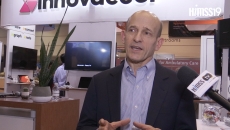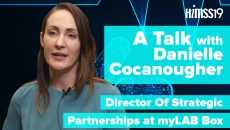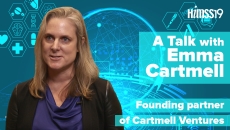Provider
Dr. David Nace, chief medical officer of Innovaccer, says ZIP code-level data about risk indicators and social vulnerability of patients and populations exists, so now it should be refined and presented to clinicians to enable better care.
BeCare Link is using artificial intelligence to better manage multiple sclerosis patients and lower fall risk, says Alan Gilbert, CEO of the digital therapeutic company.
Cuts to the network's government funding triggered the layoffs, but OTN describes them as a restructuring for efficiency.
The KardiaMobile 6L builds upon its predecessor with a third electrode placed on its back side, allowing cardiologists better insight into device owners' arrhythmias.
EverlyWell is helping transform the process of getting laboratory tests by expanding and improving access, affordability and convenience for the consumer, says founder and CEO Julia Cheek.
The digital health industry has much work to do when it comes to developing technologies for underserved populations, including people of color, the LGBTQ community and women.
The value of Health 2.0 is as a convener – exposing longtime healthcare professionals to new ideas from innovative companies, and helping those startups learn from experts, says Danielle Cocanougher, director of strategic partnerships at myLAB Box.
Emma Cartmell, founding partner of Cartmell Ventures, talks about big changes coming in digital health and describes her investment philosophy.
Will Reilly, VP of client and consumer marketing at VisitPay, says the rise in patient responsibility means revenue cycle teams have to figure out how to engage them and work more closely with marketing.
Data from 19 studies suggest emotional benefits for those living in homes, but stress that the simulated pets won't be accepted by every senior.





